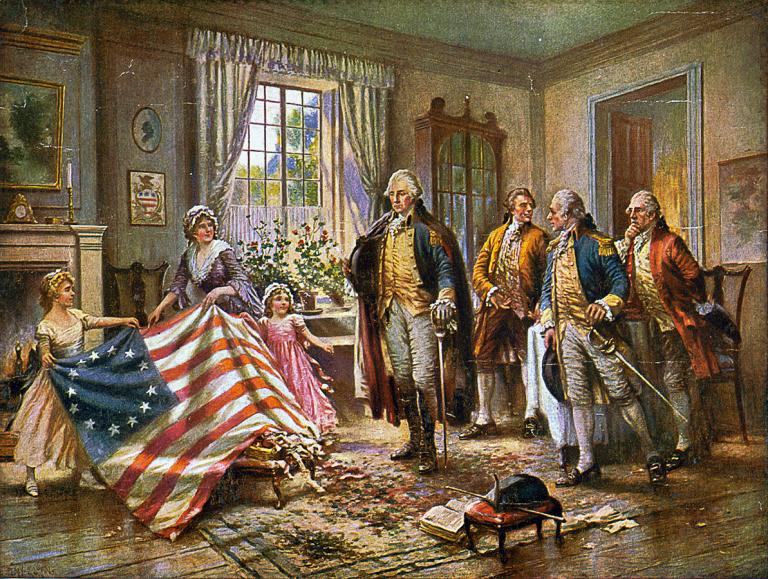
What follows is, ahem, a load of covfefe, but it’s something I was thinking about subsequent to my post yesterday about American culture and international agreements.
If you think about “diversity” and “multiculturalism” and reports of the same at schools and universities, you probably land on things such as:
- Celebrations of the traditional music, dance, and food of a given non-American society or an American subculture,
- Acceptance/tolerance or welcoming/celebration of people with different skin color, facial features, and accents (whether non-native speakers or speakers of so-called “ebonics”), different styles of dress, or with different religious practices, including religious clothing, food restrictions, and the like, relative to white, European-origined people of American suburbs.
- Elimination of practices that non-mainstream-cultured people find upsetting, such as asking “where are you from?” of an individual with Asian ethnic origin but a plainly American accent, or expecting a black student to be able to speak for all students of her race/ethnicity on a topic (or, conversely, such a student claiming to be able to do so).
But deeper down, we all, as Americans, participate in an American culture. And here I have pulled Riding the Waves of Culture, by Fons Trompenaars and Charles Hampden-Turner, off the bookshelf. This was a book that was given to us as reading material when we were preparing for our expat assignment in Germany, and it was really eye-opening in terms of seeing that “culture” is a lot more than just traditional clothing, dances, and food.
I’d already experienced some of this even just with my in-laws: the fact that following the Rules of Polite Behavior was very important to them — that is, greeting everyone when you walk into a room, with handshakes. But Trompenaars identifies (and connects up to international business, but the lessons are greater than that) five dimensions of “how we related to other people”:
- Universalism vs. particularism, or rules vs. relationships
- Communitarianism vs. individualism (the group vs. the individual)
- Neutral vs. emotional (the range of feelings expressed, e.g., in business dealings)
- Diffuse vs. specific (the range of involvement, that is, how “personal” the business relationship is)
- Achievement vs. ascription (how status is accorded, that is, your own record vs. your credentials, connections, etc.)
He also identifies additional cultural differences in how we view time — not just the bit about some cultures being “chronically late” but whether one thinks primarily in terms of everything going in its order vs. thinking in a “polychronic” way: “there is a final, established goal but numerous and possibly interchangeable stepping stones to reach it”. In addition, cultures differ in how they think of the past, and the short vs. long-term future.
And cultures also very in terms of how we relate to nature/the natural world and how we perceive our ability to control the world around us, vs. fate controlling us.
This is probably not something unique to Trompenaars; it’s a book I have on my bookshelf but I presume there are others like it. I find it fascinating, though, that things that we, as Americans, think of as “perfectly normal” simply operate quite differently in other cultures. For instance, he describes different cultural norms with respect to contracts: Americans want to develop extensive lawyer-approved contracts that specify every contingency, and expect that, having done so, the contract will be abided by in all circumstances; a country such as Japan will expect that one builds up a personal relationship with one’s business partners, and then, having established trust, the particulars of the contract are less important because one assumes that one’s partner will do the “right thing.”
Now perhaps you’ll say: “stop right there. ‘Multiculturalism’ means exactly accepting that we do not all share the same culture, even in this deeper sense.”
But if that’s the case, we’re in serious trouble.
The well-being of our society depends on our ability to integrate newcomers into our culture, in this deeper sense, even if superficial things like community celebrations differ. The well-being of any society depends on this ability to function with the same set of common expectations about the way we relate to each other. To take some superficial examples: imagine a deli counter in which half the people dutifully take their numbers and wait their turn, and the other half barge up and expect that the loudest get served first. (Side comment: as much as Germans are known for orderliness, I tried to avoid the deli counter if at all possible, going to stores that had packaged lunchmeat instead, because they did not have a take-a-number system and it seemed that it was always the turn of whoever made themselves heard.) Imagine a meeting where half the people show up on time, the other half an hour late. Imagine a corporate culture in which half the people expect that it’s perfectly normal to hire and promote based on nepotism and cronyism and the other half expect to get hired and promoted based on achievement (yes, there are instances of nepotism/cronyism but that’s considered objectionable, not “business as usual,” by the large majority).
Consider the protests that flare up periodically at universities — where it seems to me that what’s going on is a clash of cultures at a much deeper level, in which universities have evolved into a subculture (perhaps influenced by non-American cultures?) which is at odds with mainstream American culture. If you look at Trompenaars’ list above, you can identify a clash in many of these aspects of culture: protesters reject the idea that individual achievement matters vs. perceiving the world as having been giving advantage to white men and jostling to take that advantage for themselves; they see things with a lens of group identity vs. individualism; they “take everything personally”; they reject the notion that the system operates on notions of “fair play” and “the rules are the same for everyone”; and they look backwards, to an unjust past, rather than being generally forward-looking.
Now, in most of these contrasts, my instinctive reaction is “of course, the American way is the best.” Your own personal ability should matter more than who your father was or what school you attended, for instance — though I can also see that the American tendency to want everything in black-and-white and spelled out in The Rules has its own problems. And I presume that, were I Japanese, or Korean, or whatever, my perception would be quite different.
But my point is that, if we disrupt our culture in this deeper sense, if we perpetually have to manage these sorts of conflicts, that aren’t really manageable within a culture, then we’re in a covfefe-load of trouble.
Photo: own image.













